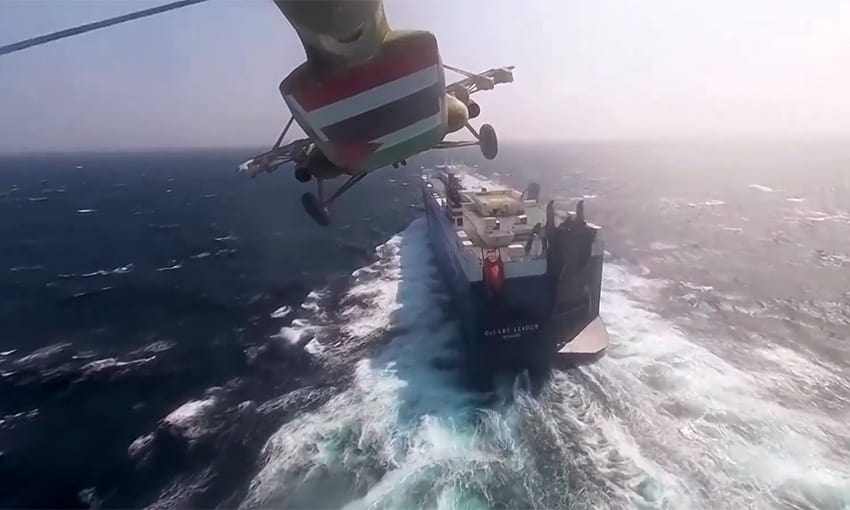THE UNITED States and United Kingdom launched strikes against Houthi military targets on Friday in response to continued attacks against shipping in the Red Sea.
Australia was one of four countries to have supported the strikes, alongside Bahrain, Canada and the Netherlands.
Governments said the targets in Houthi-controlled areas were used by Houthis to attack ships.
The US and UK strikes on 12 January follow what is considered the Houthi’s largest attack to date – on 9 January US and UK naval forces shot down 21 drones and missiles fired toward the southern Red Sea.
“These strikes are in direct response to unprecedented Houthi attacks against international maritime vessels in the Red Sea – including the use of anti-ship ballistic missiles for the first time in history,” US President Joe Biden said in a statement on the coalition strikes.
“More than 50 nations have been affected in 27 attacks on international commercial shipping. Crews from more than 20 countries have been threatened or taken hostage in acts of piracy.
“More than 2000 ships have been forced to divert thousands of miles to avoid the Red Sea—which can cause weeks of delays in product shipping times.”
Australia was one of several governments to issue a joint statement earlier this month calling for illegal attacks to end immediately.
In a follow-up joint statement on 12 January, Prime Minister Anthony Albanese said precision strikes Friday were intended to “disrupt and degrade the capabilities the Houthis use to threaten global trade and the lives of international mariners in one of the world’s most critical waterways”.
“The Houthis’ more than two dozen attacks on commercial vessels since mid-November constitute an international challenge,” he said.
“[Friday’s] action demonstrated a shared commitment to freedom of navigation, international commerce, and defending the lives of mariners from illegal and unjustifiable attacks.
“Our aim remains to de-escalate tensions and restore stability in the Red Sea, but let our message be clear: we will not hesitate to defend lives and protect the free flow of commerce in one of the world’s most critical waterways in the face of continued threats.”
On 11 January the UN Security Council passed a resolution condemning the attacks and demanding that they cease.
International Maritime Organization secretary-general Arsenio Dominguez said he welcomed the resolution affirming the exercise of navigational rights and freedom by merchant vessels, in accordance with international law, must be respected.
“The entire world depends on international shipping,” he said.
“Seafarers, ships and cargoes should not be the subject of attacks. We must all work together to ensure safety of seafarers, freedom of navigation and stability of supply chains. And I join the calls for caution and restraint to avoid further escalation of the situation in the Red Sea and the broader region.”
Mr Dominguez reiterated his support for the immediate release of the Galaxy Leader and its crew.
“IMO will continue to enhance the safety and secure transit of vessels of all states through the Red Sea and will closely monitor the situation, in collaboration with member states and partners from the industry,” he said.

